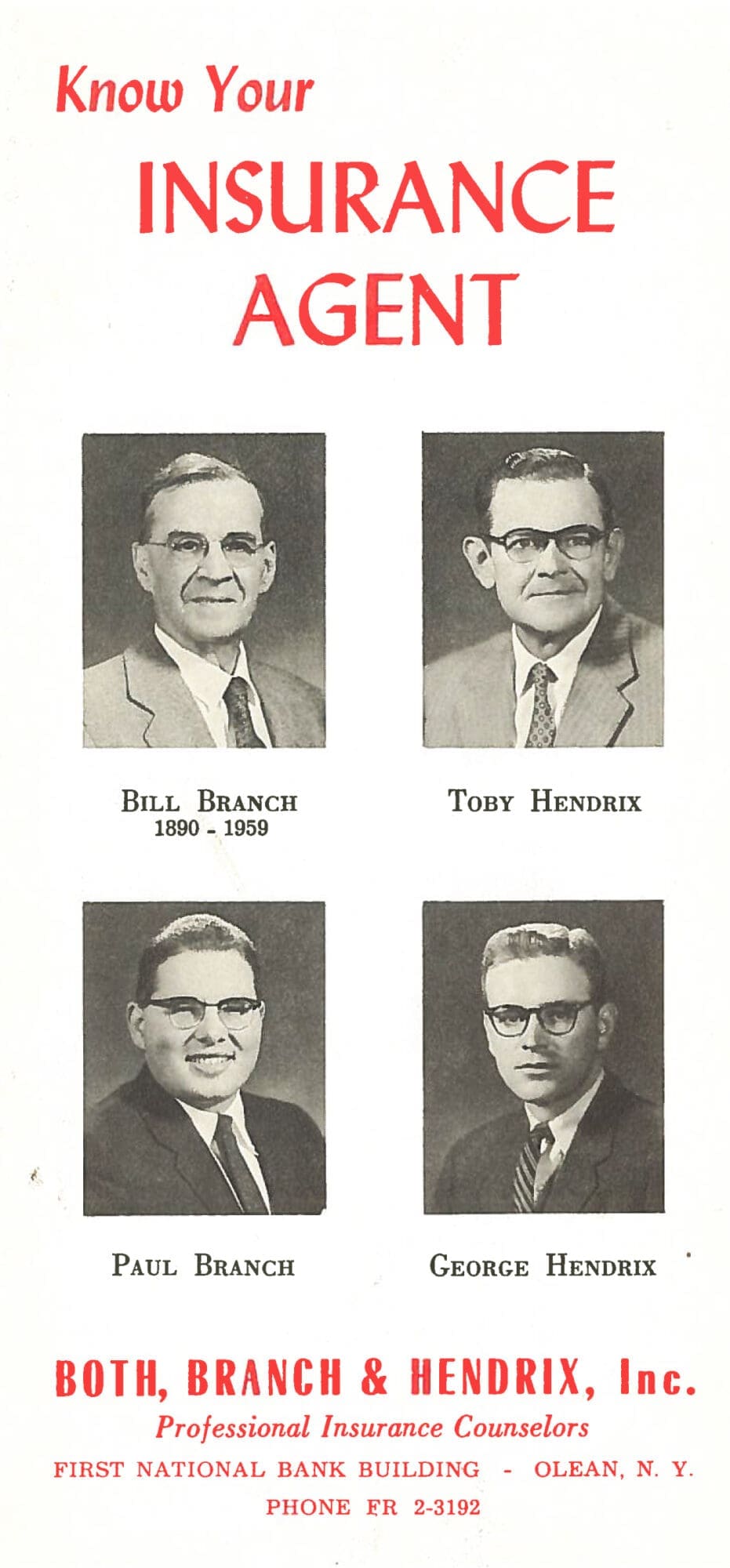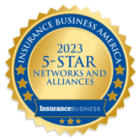What sparked the idea for the first insurance network, Iroquois Group, back in 1978? We sit down with Laurie Branch, CEO of Iroquois, to find out how the concept for Iroquois was born and how the organization has grown and changed over the past 40 years. Laurie also shares stories about mixing family and business when running a family agency – something to which many of our members can relate.
Edwin K. Morris (3s):
Welcome to the trusted advisor podcast brought to you by Iroquois group. Iroquois is your trusted advisor in all things insurance. I am Edwin K. Morris. Laurie Branch is the CEO and president of the Iroquois Group. After spending four years working in brand management for Proctor and gamble, Laurie joined the Iroquois group in 1984. Since that time, the network has grown tremendously, increasing from 50 member agencies in two States to over 2000 in 41 States. Laurie was named New York State’s Woman of Excellence in Business by Governor Patterson in 2009.
Edwin K. Morris (44s):
Laurie Branch, tell me about the history of Iroquois. When did it start?
Laurie Branch (48s):
In the late seventies, my dad and his partner, George Hendrix, ran a local agency, insurance agency. Just like everybody else’s out there. They realized, Oh my gosh, we have nine kids. Just occurred to them, well after they’d had nine kids, that they had nine kids and they realized where were they going to make room for all of these kids in the family business. And so they started looking at ways they could expand. And some of the ways they could expand was to become the dominant agency in their hometown. And they, they achieved that. They were very successful, but they still didn’t have enough room for nine kids. So one day I was home from school on break and I was out selling.
Laurie Branch (1m 31s):
It was a humorous time because of course, when I was 18, I looked at 12. It’s a sad, sad thing. But when I was 17, I went to the movies and they, they didn’t even ask. They just gave me under 12 as my ticket. So I was out selling and I was doing program business, which if anybody out there has ever done program business, you become an expert in a specific field. I became an expert in schools and nursing homes, and I would go to nursing homes and schools all over the region, two to three hours out, call on them, ask for a copy of their policy, bring it back home, analyze it, put together a better package at usually a better price. And I’d go back in and I’d present it and other than being presented to by a 12 year old, I had everything I needed to walk away, walk out that door with the business.
Laurie Branch (2m 20s):
Unfortunately, more often than not, I didn’t walk out the door with the business. And it was because the local agent got one last shot. And so I was complaining about this at dinner one night, because we always talked business at dinner to my mom’s dismay, but we did, I was complaining about it. And my dad said, that’s awesome. That’s wonderful. This is terrific. I said, no, you don’t understand. I didn’t get the account. And he goes, No, there’s an anomaly in the market. And we can exploit it. The local guy always get the last book because they go to church or they’re on, their little kids are on the same T-ball team or they’re in the same fraternal organization, or service organizations.
Edwin K. Morris (3m 0s):
Right, you got all of those social connections. Yeah.
Laurie Branch (3m 1s):
They would take my proposal with all of the improvements that I made and all the coverage changes that I’ve found for them and all the mistakes corrected. They would go back to their local person, hand it over to him and say, what can you do? That person would exactly copy what I did then beg their underwriter for a price reduction to get just a tiny bit below or as it turns out within 10%. The amazing thing is sometimes they stayed with the local agent, even though it costs them more. And that was that local connection. My dad’s theory was we can exploit that. We can make that work to our advantage. So he started buying, he and George started buying agencies and keeping the local name and keeping a local partner, making all of the products that we had available to us, including the program products, available to these local agents that appeared to be still the owners in their towns.
Laurie Branch (3m 53s):
And lo and behold, it worked out wonderfully and it turned out that there was more than enough room for nine of us in the family business.
Edwin K. Morris (3m 60s):
So you said it was a local to the town, right? And then how did it, how did it grow? How did it grow?
Laurie Branch (4m 7s):
Well that was early, that was the late seventies. Then in the early eighties, we were still buying agencies and bringing them into the group, but maintaining their individual identities. In about 1984 or 85, we came upon this idea of the marketing agreement. And the marketing agreement said to the carriers, we are going to take an option or a long-term interest in this agency because initially carriers would not recognize a group of insurance agents unless they were commonly owned. In the mid 1980s, that started change. And if you had an option to purchase it, then they would count that as future control. At that point, we moved over to taking options and eventually, and through negotiations with the carriers, we got them to agree that maybe we didn’t even need the option.
Laurie Branch (4m 55s):
And that’s when our members agreement was born. And that was about 1985, 1986,
Edwin K. Morris (4m 60s):
Explain the member’s agreement. How does that work?
Laurie Branch (5m 1s):
The member’s agreement says that you were a free and independent, a hundred percent on your own, but you’re going to join the group in order to get advantages, like access to carriers, better compensation, expertise, comradery, somebody else that you can go to and talk to about your business, that isn’t your competitor down the street. Yeah.
Edwin K. Morris (5m 21s):
That’s gotta be a worthwhile effort to get involved with.
Laurie Branch (5m 25s):
It was a lot of fun. And so when I first joined the company in 1984, we were 50 members. We’re now over 2200. It’s been a great ride. It really has. The early years were really tough because we were doubling every year and that’s an unsustainable growth rate. You just can’t keep up with the infrastructure to service effectively an organization that is growing at that rate. And so, and we were all self-funded too.
Edwin K. Morris (5m 50s):
How did you slow that down? I mean, how do you slow down progress?
Laurie Branch (5m 54s):
Well, you get pickier about who can join the group and you make a, a higher level of selection for who can become a member of the group. We force multiplied by getting regional managers. So we began with family members and then went outside to extended family members who are now essentially family members, like Matt Ward who’s been with the company since 1985 and I would consider to be as much family as anybody.
Edwin K. Morris (6m 18s):
Right. You know, I come from a family business. So what, tell me the pros and cons of the family dynamic in business.
Laurie Branch (6m 24s):
Well, I, you know, the thing is that you can have an argument at the office, but you’re still going to be at the dinner table together. So
Edwin K. Morris (6m 30s):
Are you saying the argument doesn’t continue at the dinner table?
Laurie Branch (6m 36s):
I’m saying that if you want your mother to be speaking to you at the end of the dinner, you better leave it at the door.
Edwin K. Morris (6m 42s):
So is that a cultural shift? I mean, as, you bring up a good point, right? Not every, not in my experience was it very easy to leave stuff at the door.
Laurie Branch (6m 51s):
It is not very easy to leave stuff at the door. And we all came to respect that each other, that each of us brought different talents to the organization. And so from my perspective, Matt Ward does an amazing job with our carrier relations and managing our field operations. So for me, it would be unlikely for me to mettle in anything that he does other than to step back and say, have we thought about X? Every thought about Y? Because he does such a great job. And on the other hand, he trusts the Olean office and all of our infrastructure and systems to me, but we’ll sometimes call up or send me an email saying, you know, this isn’t working the way I think you wanted it to. Have you thought about X, have you thought about Y? But it’s a division of labor.
Laurie Branch (7m 33s):
Yeah.
Edwin K. Morris (7m 34s):
That relies on a lot of trust, right? I mean, you just, can’t, that’s a huge bond.
Laurie Branch (7m 39s):
Exactly. And I would trust Matt Ward with the company and have many times.
Edwin K. Morris (7m 45s):
Thanks for listening to this edition of the trusted advisor podcast brought to you by Iroquois. Iroquois, your trusted advisor for all things insurance. And remember, get out of the office and sell. This program was recorded live at the Cohen multimedia studio on the grounds of Chautauqua institution. I am Edwin K. Morris, and I invite you to join me for the next edition of the trusted advisor podcast.



